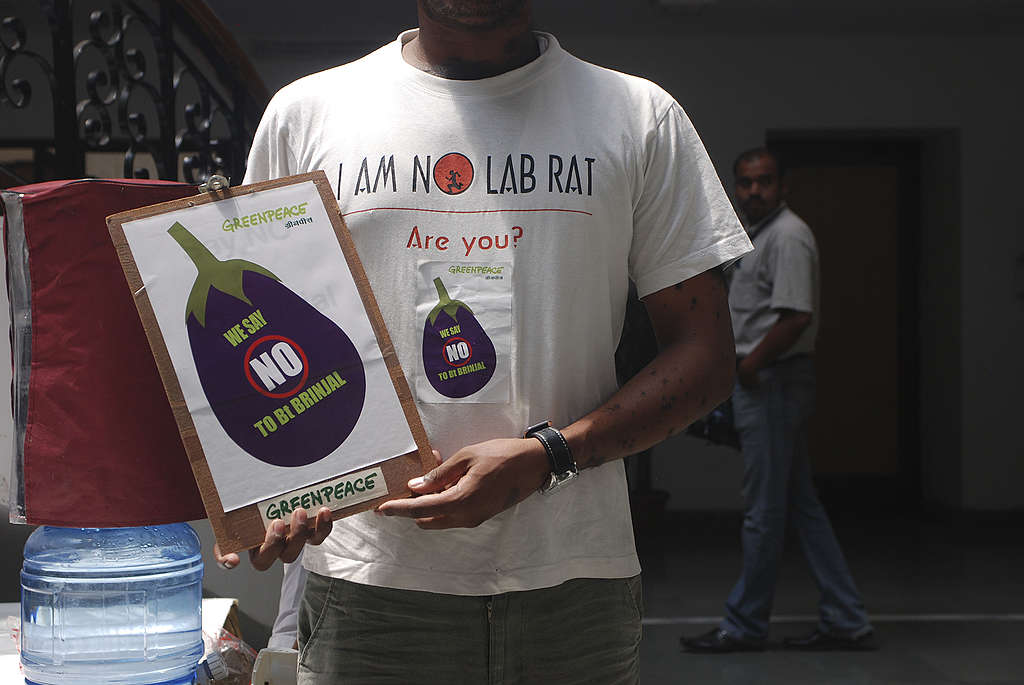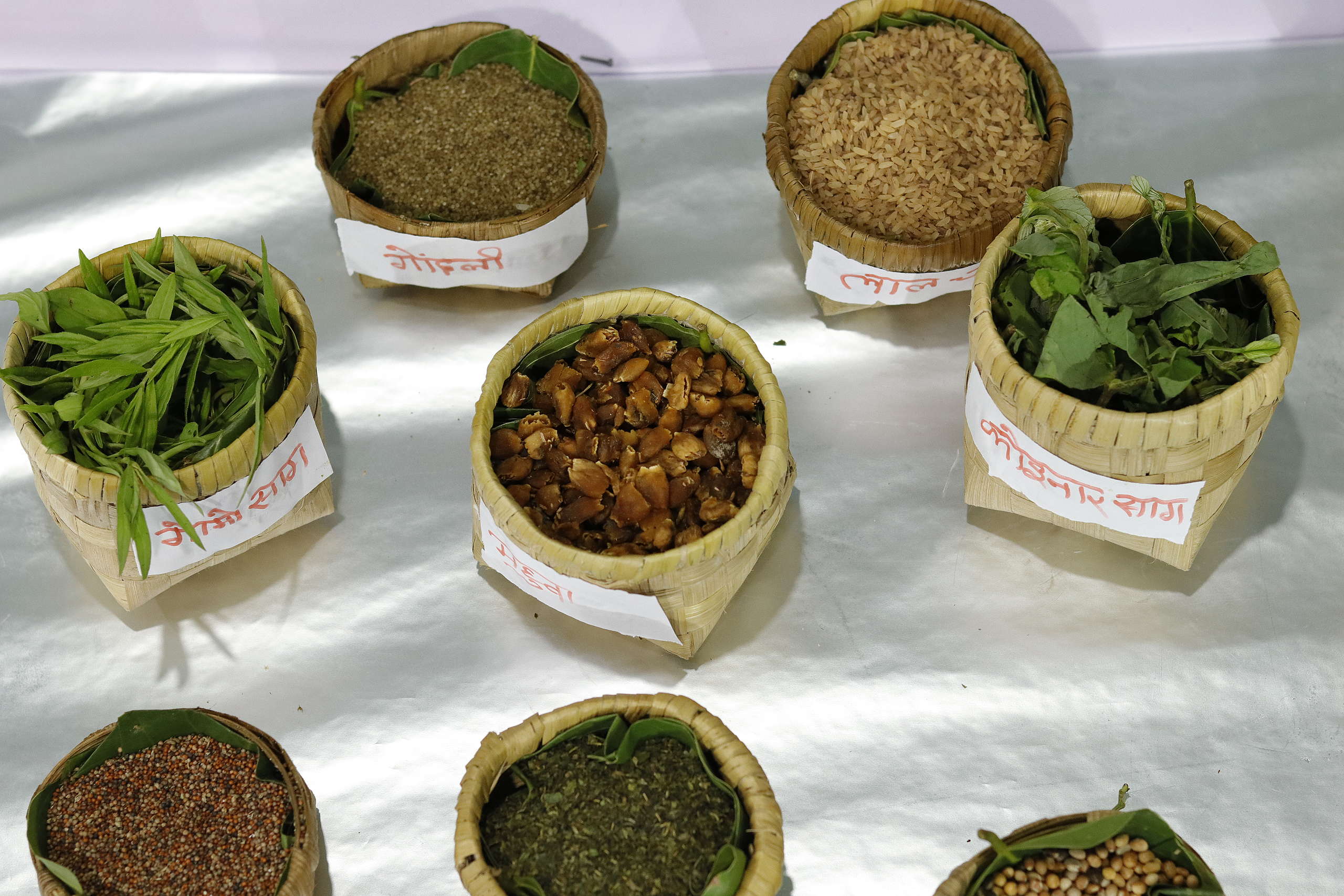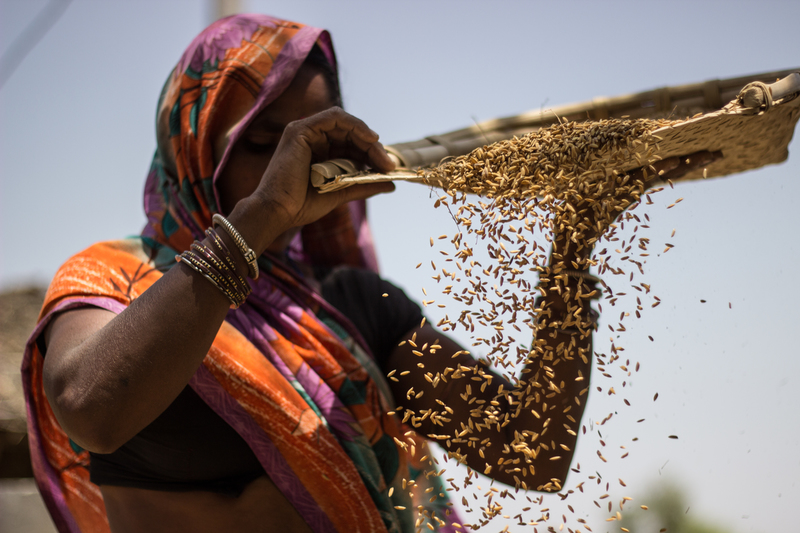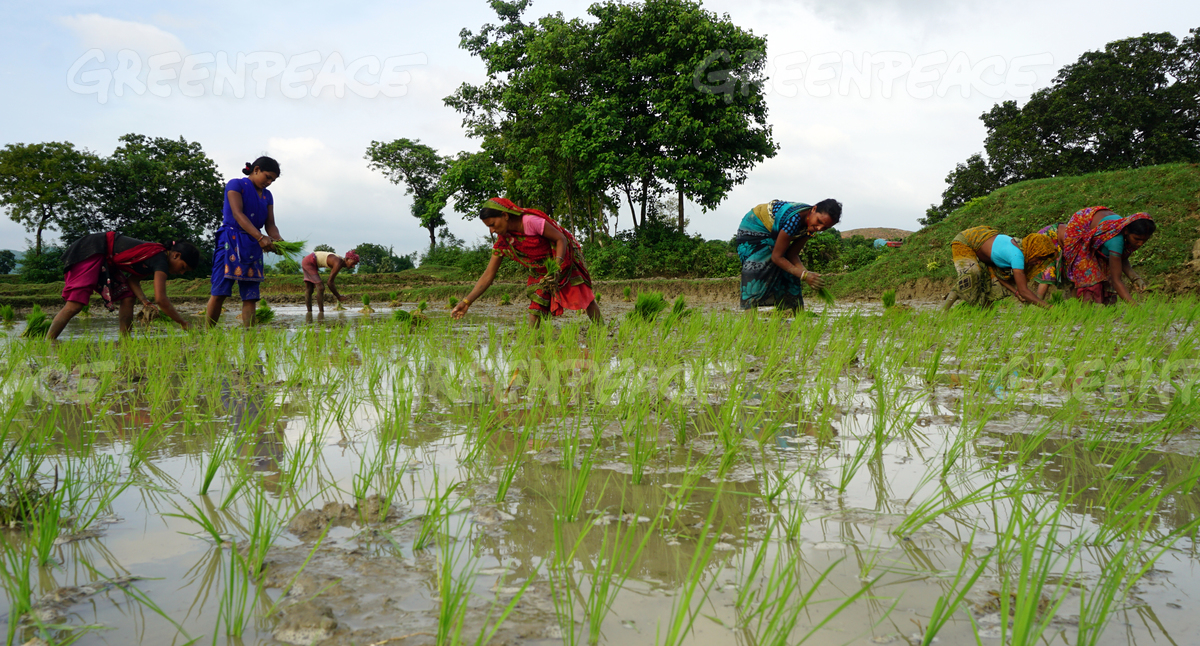Around last one month, Ishar Saini’s life has not been normal. He has been in the limelight from the day activists group alleged chances of Bt-brinjal being grown on his farm. Samples were tested and have been found to be positive. Activists have been mounting pressure over the government and local administration for a thorough investigation into the case and to ensure that illegal sowing of GM crops be stopped immediately. But the administration seems to be adamant about not expanding the range of samples and is gearing up to take action against Saini.
For now, Saini has destroyed his crop (in less than half an acre of land) in presence of local officials and activists. Saini speculates that tough government action is coming his way but this is not what activists are demanding.
On behalf of Farmers and Consumers organizations and scientists, Prof. Rajinder Chaudhary has submitted a letter to DS Dhesi, Chief Secretary of Haryana. The letter clearly demands the state government to “undertake tests to identify exact Bt event which will help (you) identify source of Bt brinjal planted, undertake extensive investigation and testing to identify extent of plantation and map supply chain.”
The demand from the activists and response from the government make a curious case of fate of farmer and I am stuck by Saini’s first reaction over my call- “Hamari kya galti hai?” (What is my crime?)
“My son Jeevan, went to Dabwali to purchase brinjal saplings from a roadside vendor around december, 2017. Vendor claimed that the saplings are resistant to insects. I guess the cost was Rs 7 per plant”, added Ishar Saini.
The major question is from where did the vendor get the GM brinjal seeds? As per a report in Hindustan Times, National Bureau of Plant Genetic Resources (NBPGR) has not stored any GM seeds from the field trials conducted prior to the moratorium in 2010. “Mahyco and the two universities (Tamil Nadu Agricultural University and University of Agricultural Sciences in Karnataka) involved in the trials were in possession of the seeds,” says the report.
Bt-Brinjal is in use in Bangladesh since 2013. Although farmers are raising a number of concerns there, it is easier to direct fingers towards the eastern neighborhood. But there are reports suggesting the variety found in Ishar’s farm was not Bt brinjal. It was some other GM variety so training the guns towards the Bt brinjal growing country doesn’t solve this puzzle ‘how the GM brinjal variety reached Fatehabad of Haryana?’
Coalition for A GM Free India in its letter to the then cabinet minister Harsh Vardhan stated that, “For any illegal cultivation of Bt Brinjal found in India, the crop/event developer should be held responsible.” That means Mahyco and the two state agricultural universities needs to be investigated immediately.
Senior lawyer Prashant Bhusan also says that the developers of the seed need to face the law of the land.
Saini family has uprooted and destroyed GM brinjal crop in the field. As per the laid norms, Saini’s need to be compensated for the loss as they only bought what was being sold in the market. “How do we come to know if the seed which was being sold is illegal or legal?,” pleads Saini over phone. He feels I may be of help to him and communicate his concerns in paper to the higher authorities.
Activists circle continue to question the administration’s approach in the case and the softness they tend to have towards the biotech industry. Kavitha Kuruganti, convenor of the Alliance for Sustainable and Holistic Agriculture, said, “The biotech industry’s strategy of ‘leak illegal seeds first, contaminate and spread the cultivation and present a fait accompli’ for obtaining approval is well known,” quoted gmwatch.org.
It seems that there is a premeditated design to establish that the illegal GM food crops are beneficial for farmers and are free from health hazards by the pro-GM lobbies and groups funded by GM companies. Here, it is of immense importance that the Government of India imposed an indefinite moratorium on all GM crops in India (except Bt Cotton) in 2010 after a series of consultations with scientists, parliamentarians, farmers and their organisations, consumers and concerned civil society groups. As of now, the moratorium is not lifted or challenged by any government agency.
Since production and marketing of GM food crop seeds are illegal in our country, we expect that the MoEFCC and Ministry of Agriculture will take all required steps to ensure that the real culprits are booked and our farmers don’t get trapped by the suspected illegal seed racketeers anymore. We expect that Saini family will be compensated for the losses he has incurred and will not be targeted for this administrative lapse.

Greenepeace activist display ‘No to BT Brinjal’ placard at the first expert committee to review the moratorium on BT Brinjal.



